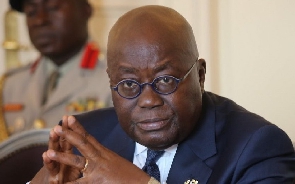"A spark can start a fire that burns the entire prairie"
The current President of Ghana, His Excellency Nana Addo Dankwa Akuffo Addo has said the unemployment rate in Ghana is 7.3%. He made this remark during the opening of the 71st New Year School at the University of Ghana.
In August 2019, The Minister of Employment and Labour Relations, Minister Ignatius Baffour Awuah during 'Meet the Press" said the unemployment rate was around 3.7%. Can we look at this carefully? Some say it is a mistake, others think otherwise.
This is not the first time such an instance has happened, thus any unjustifiable argument for the sake of political gains must be flawed. Suffice to say, the unavailability of real-time data leads to manipulation of figures, sometimes, suggesting that progress is being made when actually that may not be the true reflection of reality. This is what we call “poliemployment.”
Economic decisions are to be made based on figures and facts. It becomes heinous when there are inconsistencies in figures. It is an indication that wrong decisions will be made or the right problem will not be identified. To solve unemployment, the country and policymakers should have credible and reliable data, to begin with. The reverse only creates a vicious cycle of unemployment which has dire consequences for Ghana.
Often times, the prodigy we find very difficult to relate with is when people who become rich overnight under political appointment, stress and compel young people to venture into entrepreneurship. It gets more daunting and disheartening when, by the influence of these people, Ghana's education becomes more inclined to the production of abled men and women who end up taking white-collar jobs which cannot even absorb many of the unemployed graduates.
Successive governments in Ghana have provided misaligned solutions to the symptoms that come along with it. But how is it that a doctor should provide a cure to the symptoms of a disease rather than addressing the main sickness itself?
The initiation of the Nation Builders Corps (NABCO), a government of Ghana initiative to address graduate unemployment to solve social problems may have yielded some results. One can think of this as a temporal solution and a political win for the ruling government.
The initiative was intended to solve public service delivery taking into account health, education, agriculture, technology, governance and to drive revenue mobilization and collection. To the level of goodness, this has done should be left in the hands of the masses to judge.
To think of Post-NABCO happenings and the dreary of a complex unemployed situation with a widened net keeps us thinking. The bleak punch this could create in the lives of young people is very worrying. We can learn lessons from Zimbabwe which, though with a high literacy rate, is still struggling with unemployment. The government must not be carried away by the number of young people having access to free education.
Government must reinvent the wheels for people to be thinkers, problem solvers and innovative. Today, about 11,000 people are said to have graduated from this initiative after three years of participation in two strands: learning and working. The graduates are expected to be retained at their various places of work or unleashed their entrepreneurial prowess.
It is an election year already, yet a time to accept an application for the second badge. We hope this is not a political strategy. Simultaneously, opponents could be on the verge of similar intervention as seen in times past. Here we are dumbfounded. Young people must care about the choices since the 'theory of cause and effect' remains relevant.
Implications
Young people are becoming intolerant of how politicians are meandering their ways to appear to be creating jobs for them when in reality this is far-fetched from the truth. From the seizure of toilets by the
political faithful to being brutish, trying to force their ways into public services suggests and confirms the long-awaited response for satisfaction. Need we say more, there is numerous evidence that also suggests how young people have hooted, shamed and given some political leaders a hot chase regarding matters of unemployment. We feel this should be a discussion of national interest. At its peak, there are pieces of evidence of how countries have suffered from a similar fate.
What Young People Can do Differently
At the individual level, young people in Ghana and for this matter, Africans need to spark a conversation that delves deep and translates into collectivism. One that draws the attention of political gimmicks that power belongs to the people.
How difficult is it for the government to create an enabling environment for businesses to thrive than an agenda for continuous deceit and tales of vague promises that yield no or little unsubstantiated results excepts to widen the unemployment gap in the future.
It is such a dangerous thing to go in an individualistic manner for self-seeking opportunity through pollical expediency and not on a fair playground backed by merit.
Those who are enticed by acts of political inclination and follow suit create an impression for the politician to jeopardize with the future of young people and create a tantrum of severe economic blues whose damage may be difficult to patch-up soon.
A shift in the standards of education, ease in doing business, structured systems to fight bribery and corruption more sustainable to ending the vicious cycle of unemployment than a show of one that sends us back to the basics.
Opinions of Tuesday, 21 January 2020
Columnist: Emmanuel Acquah and Richmond Kwasi Ansah















